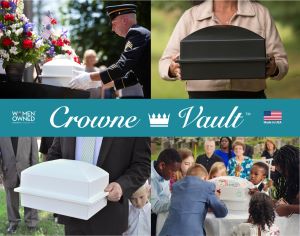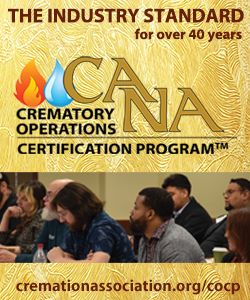How wide is your Moat. . . and will tariffs change things?

Funny how 28 hours alone in a car gives you plenty of time to think about things you probably would not think about otherwise. . . . I arrived home in Minnesota on Monday after spending Saturday, Sunday, and part of Monday returning from our winter rental home in Southwest Florida.
You might find this odd, but I actually enjoy the three days — I drop Angie off at the Fort Myers airport on Friday and she flies home. . . I then leave our rental unit bright and early on Saturday morning to drive our car back to Minnesota. We’ve done this for five years now. . . and it works for us.
Luckily my car, actually an SUV has Sirius XM radio and I have the opportunity to listen to about 150 different stations over the 28-hour drive period. This year I got tons of information on the NCAA basketball tournament, learned alot about NFL free agency and the upcoming draft, and enjoyed listening to experts on business and government/political related stations as well.
That leads me into a discussion of the title of today’s column. The government/political stations talked a lot about potential tariffs. It was interesting to hear some philosophical arguments about what happens to business if/when tariffs are implemented. I would argue that the consensus of “experts” proclaimed that tariffs would hurt large companies that trade internationally and also small companies because increasing inflation may be a collateral side effect of tariffs and small companies are, according to the experts, hurt more by inflation.
What I came to understand is that the companies in the United States termed “Mid-Cap” companies would probably benefit the most or be hurt the least. Reasoning being is that while large companies have an international headwind and small companies battle inflation, many investors will turn their attention to inside the United States and support these companies. . . . . Much of that support, it was purported, would come from Private Equity that would look to invest inside the United States rather than look internationally.
Here’s a couple of recent articles that I found about that theoretical situation:
- Trump tariffs loom large over U.S. small caps. Portfolio Advisor
- Three reasons why it may be a mid-cap sweet spot. Invesco
- Tariffs pressure Mega-caps: Moat stocks show resilience. VanEck
What might this mean for Death Care? — When I heard this concept, as I usually do I tried to understand how it will affect us in Death Care. One thought that I have is that I know many “acquisition companies” use private equity to help them in the financial aspects of their acquisitions.
If private equity turns “inward” it may mean that there will be more resources available for the acquisition of funeral homes and/or cemeteries. And, if there is more cash available, that may mean that for “desireable” funeral homes and cemeteries there could be a competition to purchase them which might, theoreticaly, raise the sale price.
I don’t know. . . just one thought.
Do funeral homes still have a “Wide Moat”? — Kind of going hand-in-hand with the thought of paying a high price to acquire a funeral home acquisition companies need to be sure that the acquired funeral home has a “Wide-Moat”. In a business context here is how that term is defined:
“. . . . a “moat” refers to a sustainable competitive advantage that protects a company’s profits and market share from competitors and external threats.”

Tom Anderson
Funeral Director Daily
Traditional funeral homes have historically had this “wide-moat” in their communities. What widens that moat is that the existing business usually has a strong history, a building that would be expensive to duplicate, professional staff known in the community, and a book of pre-arrangments in its file for future business.
In addition, ownership and staffing professionals, in most states, need a license to be able to conduct much of the work that funeral homes take part in. The time and expenses to obtain that license turns out to be a moat for others wanting to come into the business as well.
A new business to compete with that business would have to make an investment in a facility, find “licensed” staff more than likely who will not be well known in the community, and have no existing pre-arrangements to build off. As you can probably understand, penetrating the “moat” of the established business may take years and result in financial losses before any gains.
My question here, is “With the changing face of funeral service, is the moat getting narrower“? For instance, can cremation providers operate out of a leased strip-mall? Can social media and online arrangements take the place of well-known staff? Can renting event centers for celebrations or services compete with a well-appointed traditional funeral home? Is licensed staff necessary for all aspects of Death Care anymore?
I don’t have the answers to those questions, but I believe they are being asked by many in today’s Death Care world. I would guess that there is no doubt that the “wider moat” that you have, the more your funeral home will be worth.
It is interesting to note that the S&P 500 has had an incredible run over the past 10 years gaining 235% in that time — an average of 23.5% increase per year. However, an Exchange Traded Fund (ETF) that invests only in what it considers “Wide-Moat” companies has done even better in that time period gaining 240%. That wide-moat fund trades under the stock symbol “MOAT”.
Successful funeral home/cemetery acquisition companies have known about the “Wide-moat” theory for a long time. However, I’m wondering if those companies still see the local family funeral home as being “Wide-moat”. . . . . .
More news from the world of Death Care:
- Stealing from the Dead: Police find stolen mausoleum door from Affton cemetery at junk yard. Video news story. KMOX – St. Louis (MO)
- John Sutter statue stolen from El Dorado County cemetery. Video news story. CBS News Sacremento (CA)
- Historic Birmingham funeral director was best “Father figure” I could have. AL.com (AL)
Enter your e-mail below to join the 3,120 others who receive Funeral Director Daily articles daily:
“A servant’s attitude guided by Christ leads to a significant life”




















